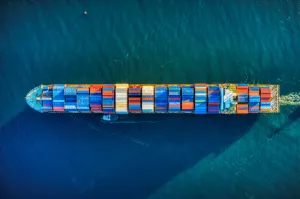About ten blocks from the coworking space in Santa Monica that Spectacles calls home, you would find yourself on the last coast of America. Staring out over the waters of the Pacific can be a reminder of how far economic growth and prosperity have taken us. For the last few weeks, though, that beautiful horizon has been interrupted, as dozens of container ships are anchored, waiting for space in the port: a symbol of our global supply chain threatening to burst at the seams.
Many opinions and predictions abounded before the end of supplemental unemployment benefits that soon people would finally get back to work, that America’s labor shortage would end. Today, similar opinions abound that, in fact, people were made entitled by these benefits and now selfishly don’t want to work, instead expecting to be bankrolled by the government.
Both analyses were and are essentially wrong. Just as it’s a silly thing to say that American cities don’t have housing shortages because there are more vacant homes than homeless people in America, it’s foolish to think that we don’t have a real labor shortage because there are more vacant jobs than unemployed people. In both cases, whether it’s homes or jobs, supply and demand aren’t always aligned.
In the case of the freight ships anchored off California’s coast, the problem is at least partly a lack of truck drivers to carry those goods awaiting off-loading to their destinations. America’s lack of truck drivers is disrupting supply chains, and school cafeterias are running out of food to serve children.
Even if companies are looking to hire long-haul truck drivers, those jobs won’t necessarily be filled just because there are also people looking for work. This occupation demands training, certification, and a lot of assets or debt up-front to acquire a rig. Once that’s all taken care of, one has to come to terms with a poor quality of life which requires days at a time on the road away from home and limited access to decent, healthy food, among so many other drawbacks.
But it isn’t just a problem of logistics and domestic labor shortages. Since vaccines became widely available along with the possibility of some return to “normalcy,” demand for consumer goods has risen. At the same time, global supplies and production have remained stagnant or taken hits due to COVID. It’s often been either difficult or unconscionable to keep factories or production facilities running at peak as the virus has ripped through the world.
To that end, it’s becoming increasingly apparent that American support for global vaccination efforts is a wise investment. Six months ago, it made some considerable amount of sense for America to prioritize the vaccination of its own population, but today America’s vaccine supply is no longer strained in the way it once was. Even as President Joe Biden has pledged to supply developing countries with vaccines, however, that pledge has fallen short. It is positively in our interest to see the whole world vaccinated, because the whole world shapes the health of the American economy.
Regarding trucking, this shortage of labor ought to be a wake-up call. Looking at the long-haul industry in terms of environmental impact, efficiency, labor conditions, or any other number of angles, it is a senseless business. Imagine an America in which we have comprehensive, fast, and high quality freight rail lines that can carry hundreds of containers across the country at a time rather than one, with depots in major areas designed to easily transfer loads to trucks for short-haul delivery. The backwardness of cross-country highway trucking becomes eminently clear.
The reason this hasn’t happened is simple. Rail costs a lot up-front, and the return on that investment is slow. Markets can be nearly magical in their potential to solve problems, but they are very bad at doing things like this. It’s a case in which public policy and public investment, which can tolerate long-term deficits, ought to be directed to cultivate the public good by improving sustainability and undercutting an industry which utilizes debt peonage.
But just as markets are bad at long-term thinking, so often are democracies. Short election cycles incentivize short-term thinking, and state incapacity generates theatrical politics. Further, the challenge of managing our global supply-side struggles is only going to get harder in an age in which confrontation seems to be brewing in the Pacific and trade relations are worsening. Challenges abound, and innovative, future-oriented thinking, rather than crisis management, will be key to America’s health and longevity.
Subscribe to SpectaclesAnd don't miss out on the discussion of this topic between Harry & Philip to learn more about supply chains, trucking, freight rail, global trade relations, flat screen TVs, debt peonage, and security dilemmas. It's a fun one. You can listen at the top of this page or in your favorite podcast app.


Comments
Join the conversation